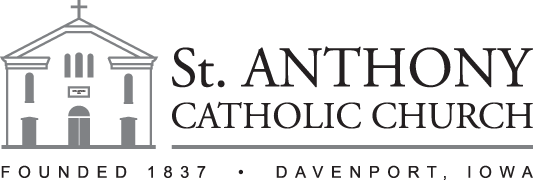Liturgy
According to the Diocese of Davenport, liturgy is not celebrated in a vacuum, but by a particular people:
this assembly in this place at this time. Therefore, the Catechism of the Catholic Church (CCC) states:
“The celebration of the liturgy… should correspond to the genius and culture of the different peoples. In order that the mystery of Christ be ‘made known to all the nations…to bring about the obedience of faith’ (Rom 6:26), it must be proclaimed, celebrated, and lived in all cultures in such a way that they themselves are not abolished by it, but redeemed and fulfilled” (#1204).
this assembly in this place at this time. Therefore, the Catechism of the Catholic Church (CCC) states:
“The celebration of the liturgy… should correspond to the genius and culture of the different peoples. In order that the mystery of Christ be ‘made known to all the nations…to bring about the obedience of faith’ (Rom 6:26), it must be proclaimed, celebrated, and lived in all cultures in such a way that they themselves are not abolished by it, but redeemed and fulfilled” (#1204).
RESPONSIBILITIES:
- Foster the full (or fully), conscious, and active participation of all in the liturgical life of the parish—a participation that is both internal and external, of the spirit and of the body (see CSL #14, 19, 55, 99, 110). In particular, to be attentive to incorporating the diversity of peoples found in the parish in the parish’s liturgies and liturgical ministries (e.g., ethnic groups, age groups, the homebound, people with disabilities, the marginalized, etc.) and reflecting that diversity in liturgical celebrations and in popular piety.
- Analyze the liturgical needs and evaluate the liturgical life of the parish in order to identify areas in need of development. In particular, to help ensure that the full spectrum of the Church’s liturgies are being celebrated in the parish (e.g., the sacraments, the RCIA in its entirety, the Liturgy of the Hours) in accord with Diocesan, national and universal norms.
- Develop, plan and evaluate liturgical and spiritual development/formation programs that will enable the entire parish to grow into a deeper relationship with Christ and to learn more about the liturgical life of the Church. To keep the parish informed concerning liturgical norms and practice, in cooperation with the Diocesan Office of Liturgy.
- Invite and appropriately form lay liturgical ministers, in keeping with universal, national, and diocesan norms. To provide ongoing oversight, formation, and feedback to these ministers. For example: musicians and cantors, readers, extraordinary ministers of Holy Communion, altar servers, greeters and ushers, sacristans, ministers of art and environment.
- Furnish, decorate, maintain, and recommend appropriate changes to the liturgical environment in order to better support the liturgical life of the parish—and in so doing to follow the diocesan policies regulating consultation with the Diocesan Liturgical and Building Commissions.
- Help members of the community live out the connection between liturgy and life, fostering the dynamic of moving from worship to works of justice, service, and evangelization and from life back to the liturgy. Assist with and coordinate the liturgies celebrated by sub-groups within the parish.
- Prepare a budget reflecting the liturgical needs of the parish.
- Foster and encourage participation by members of the parish in deanery-wide and diocesan celebrations, including (but not limited to): the Rite of Election and Call to Continuing Conversion, the Chrism Mass and Ordinations.
- Offer the gifts and talents of liturgical ministers from the parish to the deanery and Diocese.
